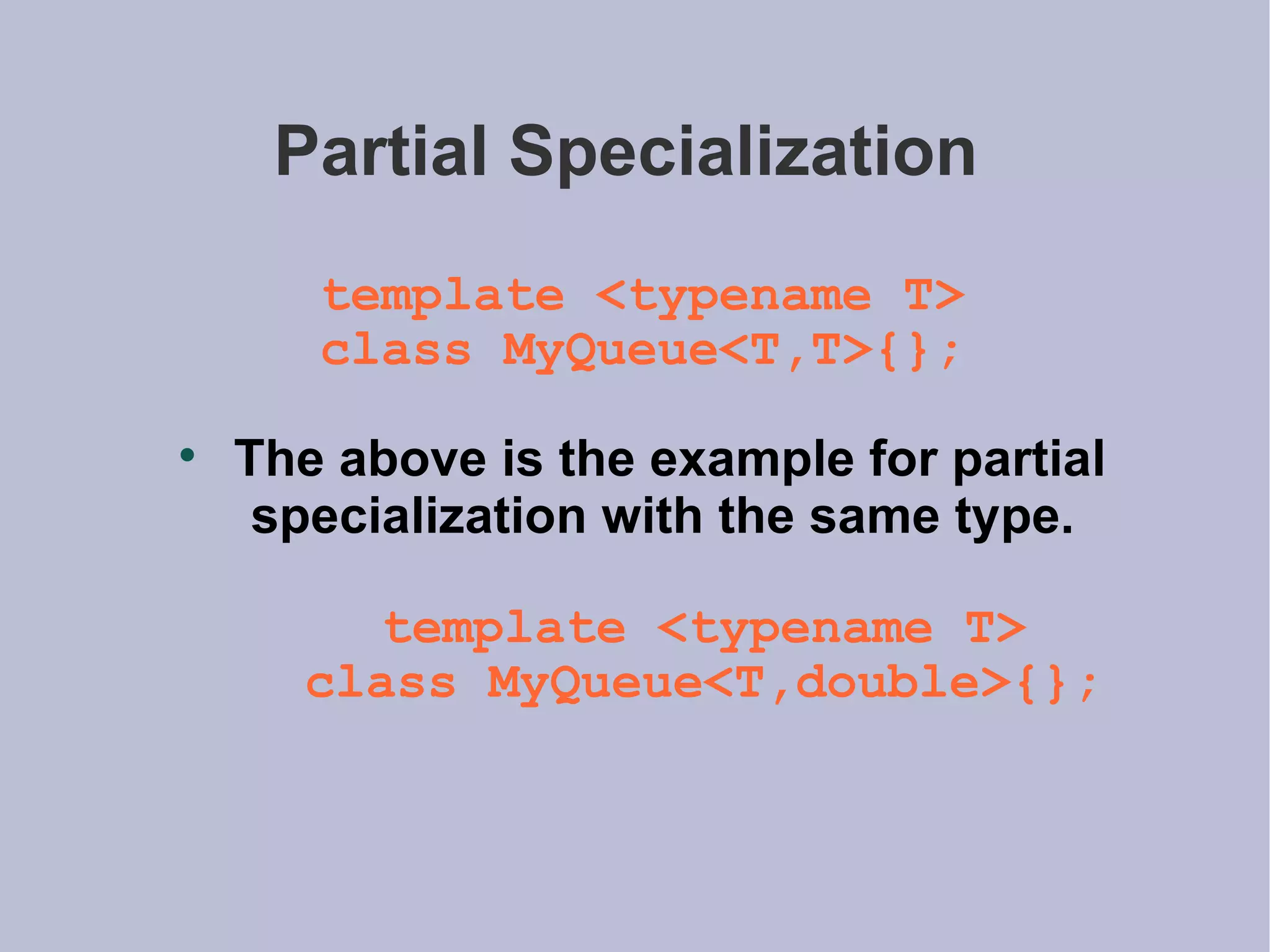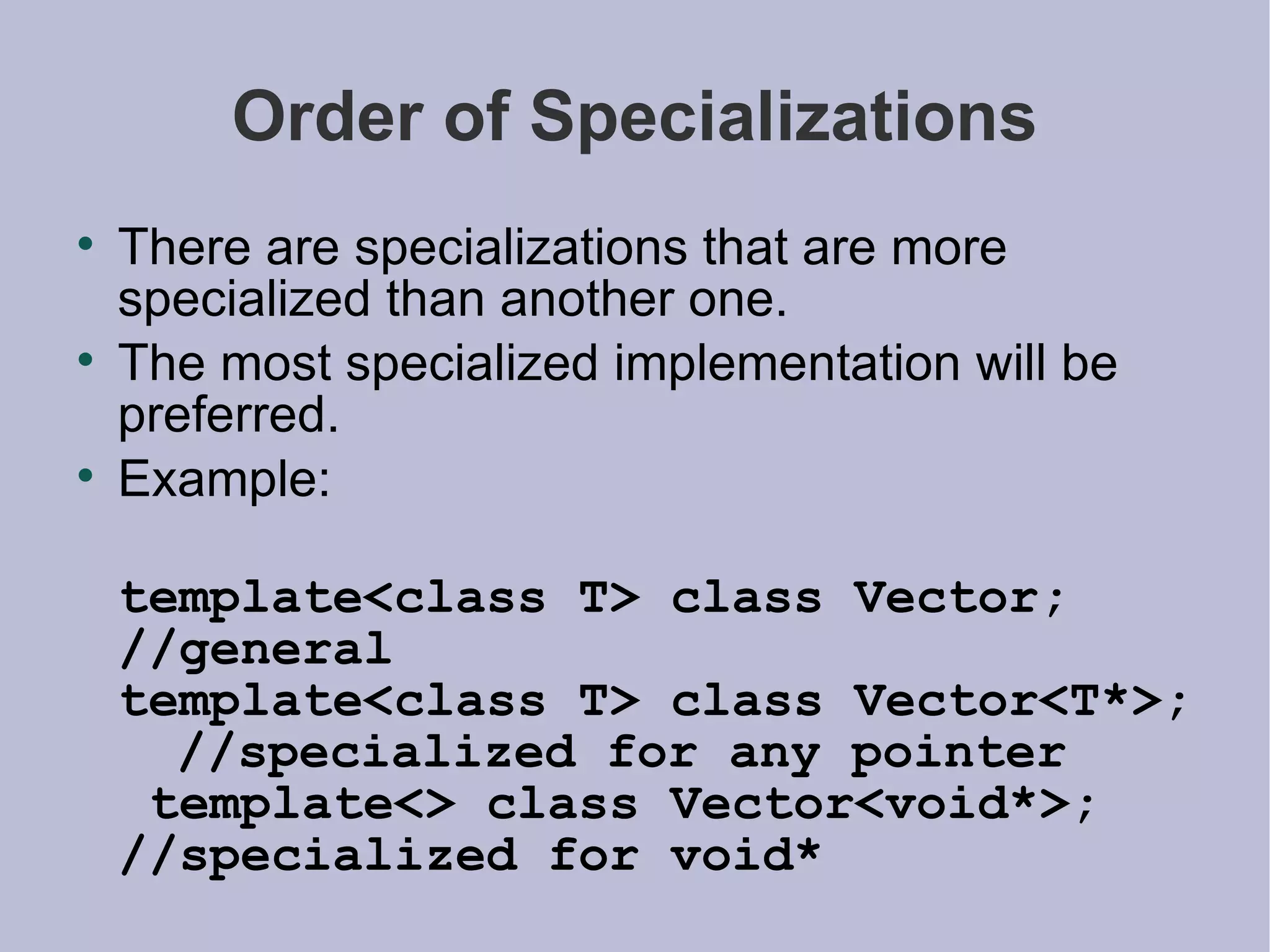Templates allow code to be reused for different data types. They make code more efficient and reduce errors by catching type mismatches at compile time rather than runtime. The document demonstrates how to define a minimum function template that can accept different data types as arguments and return the minimum value. It also discusses template specialization, which allows defining specialized implementations for specific types that differ from the general template.



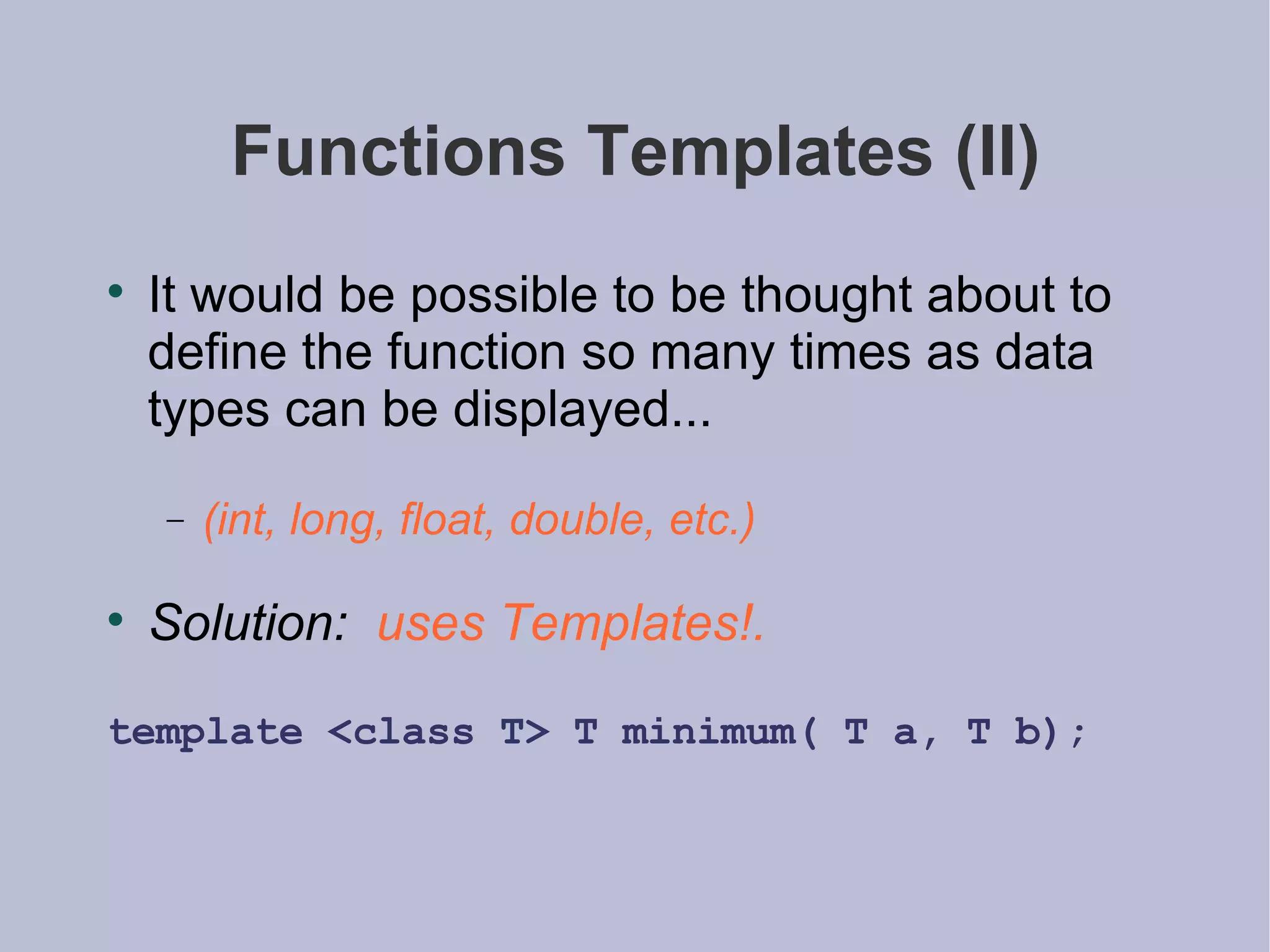
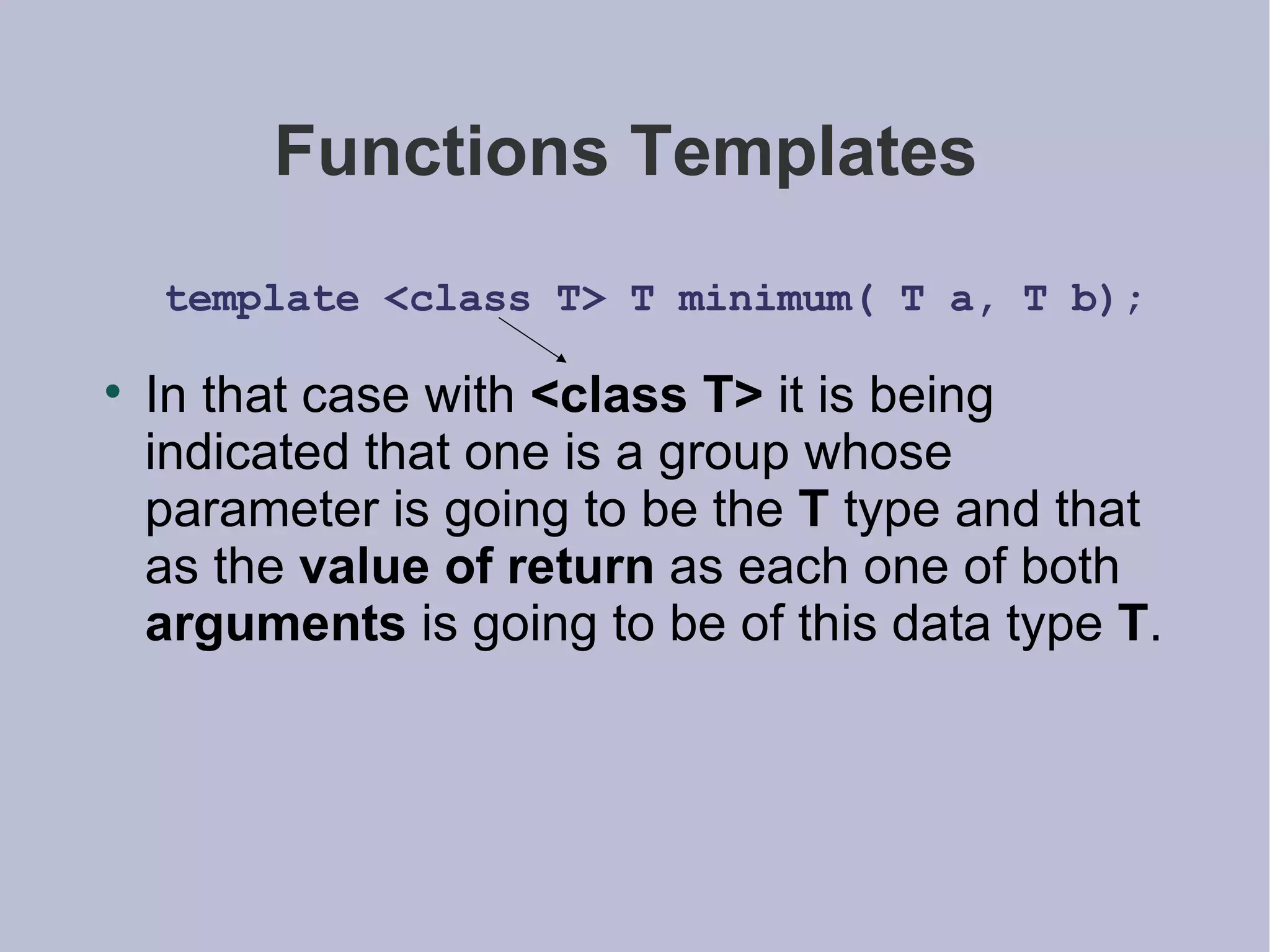
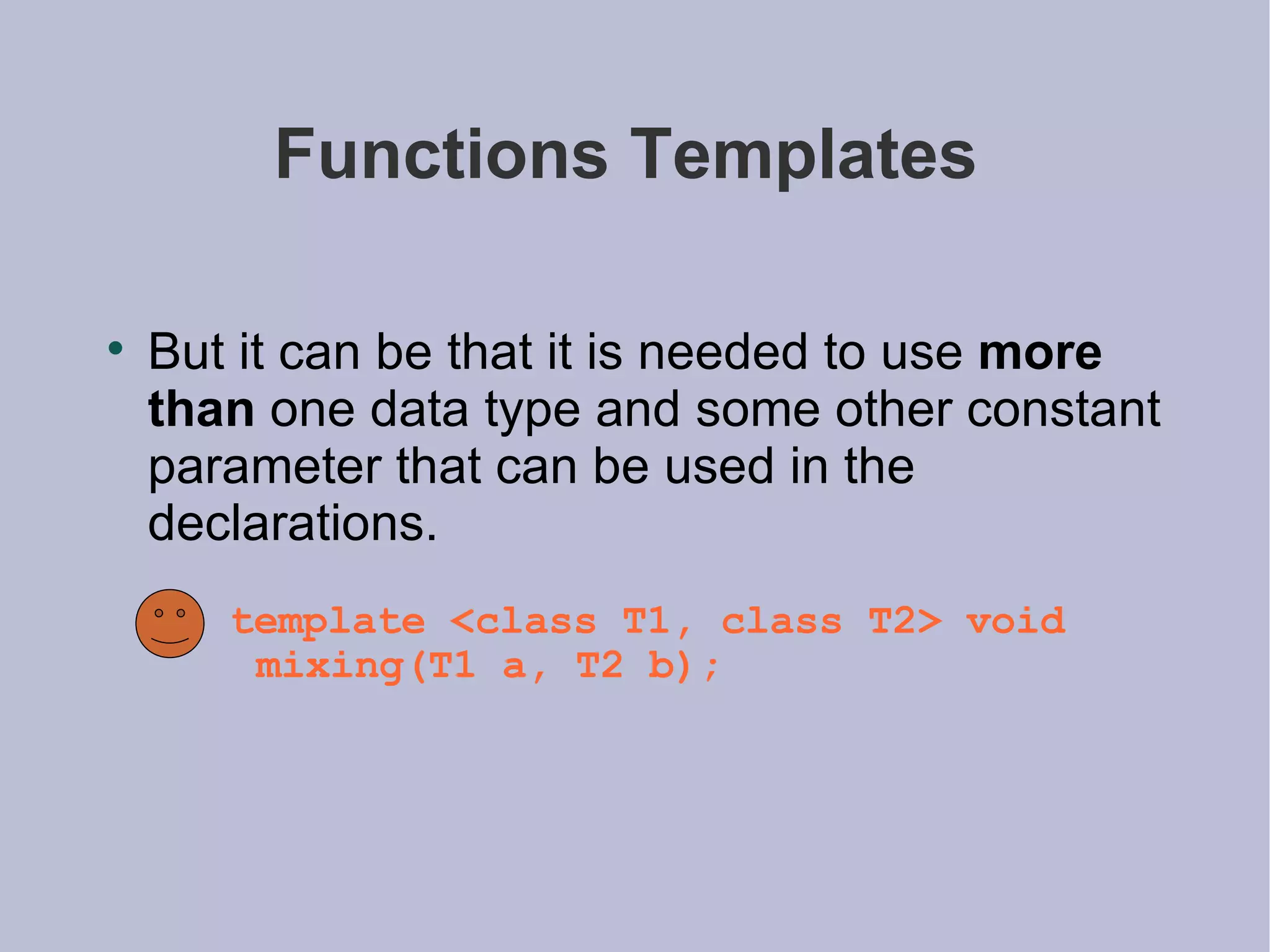
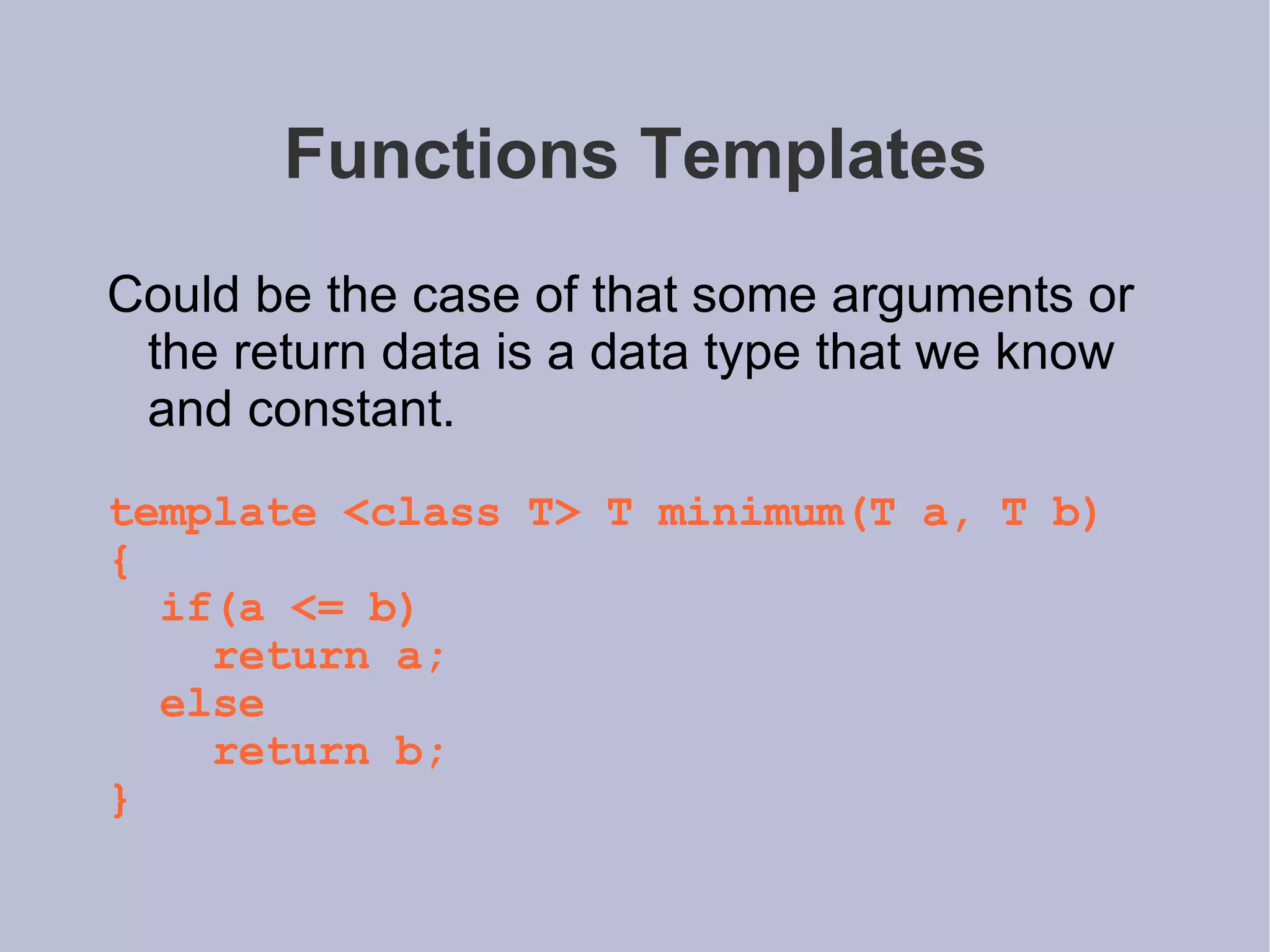
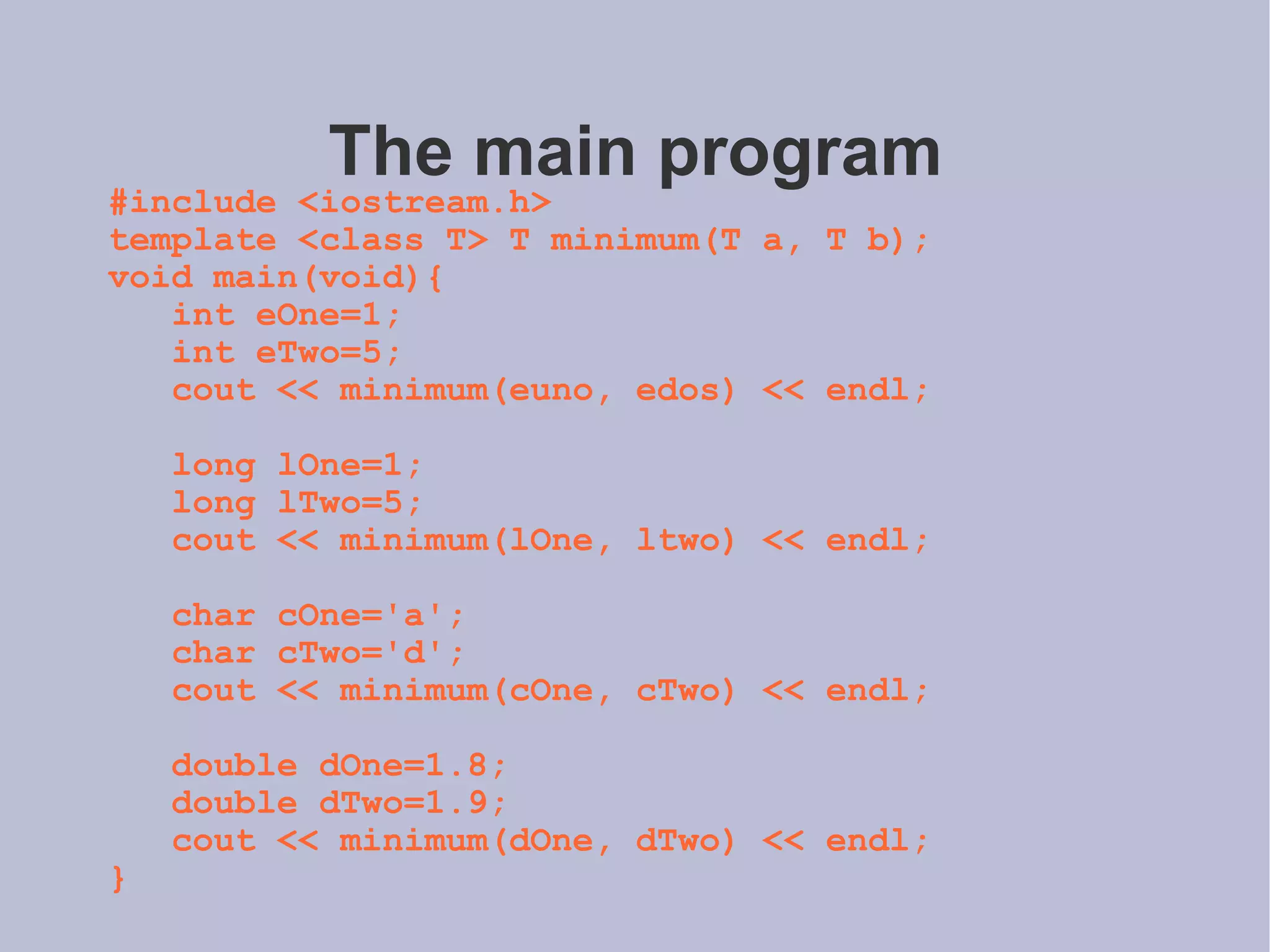
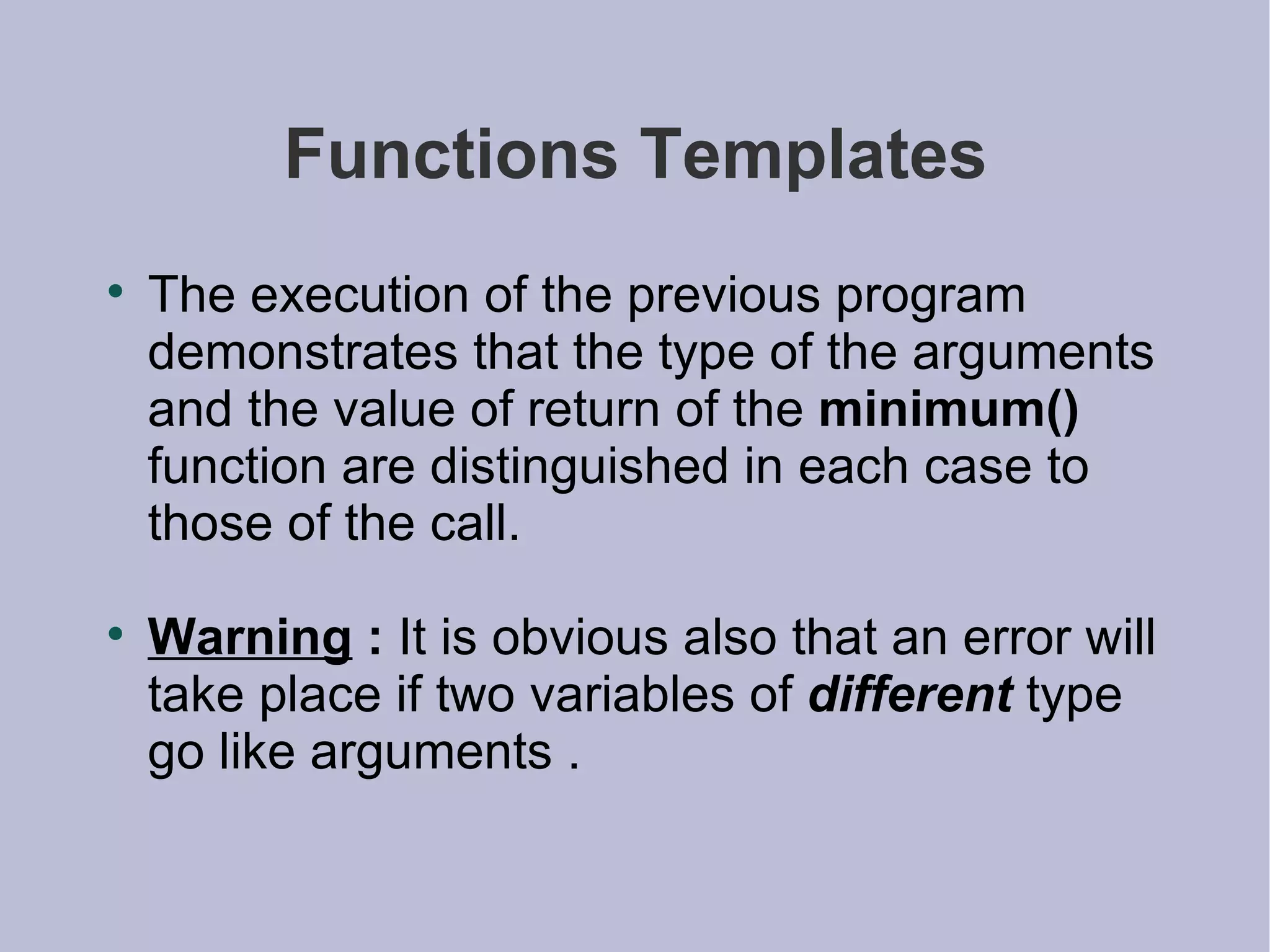
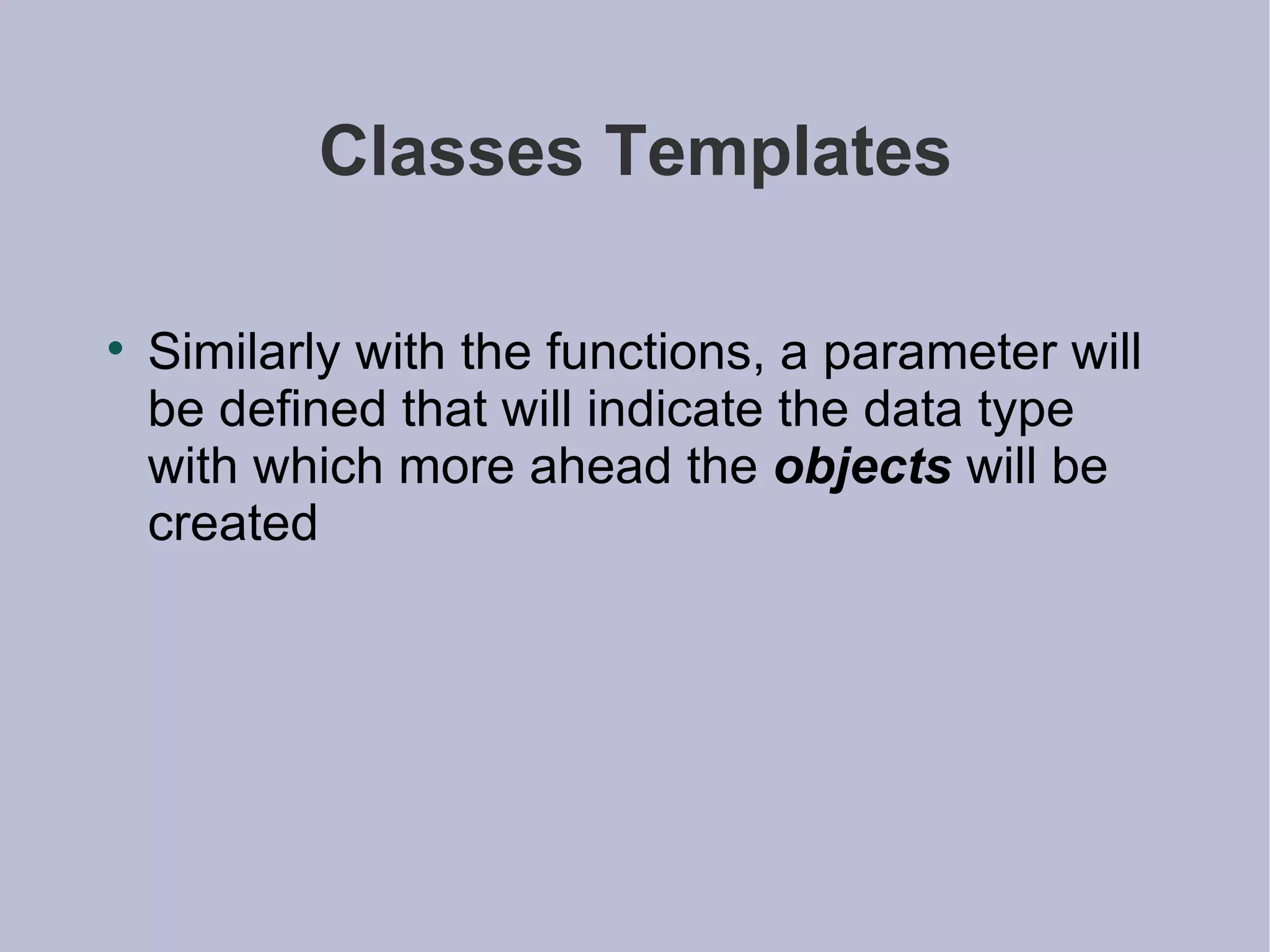
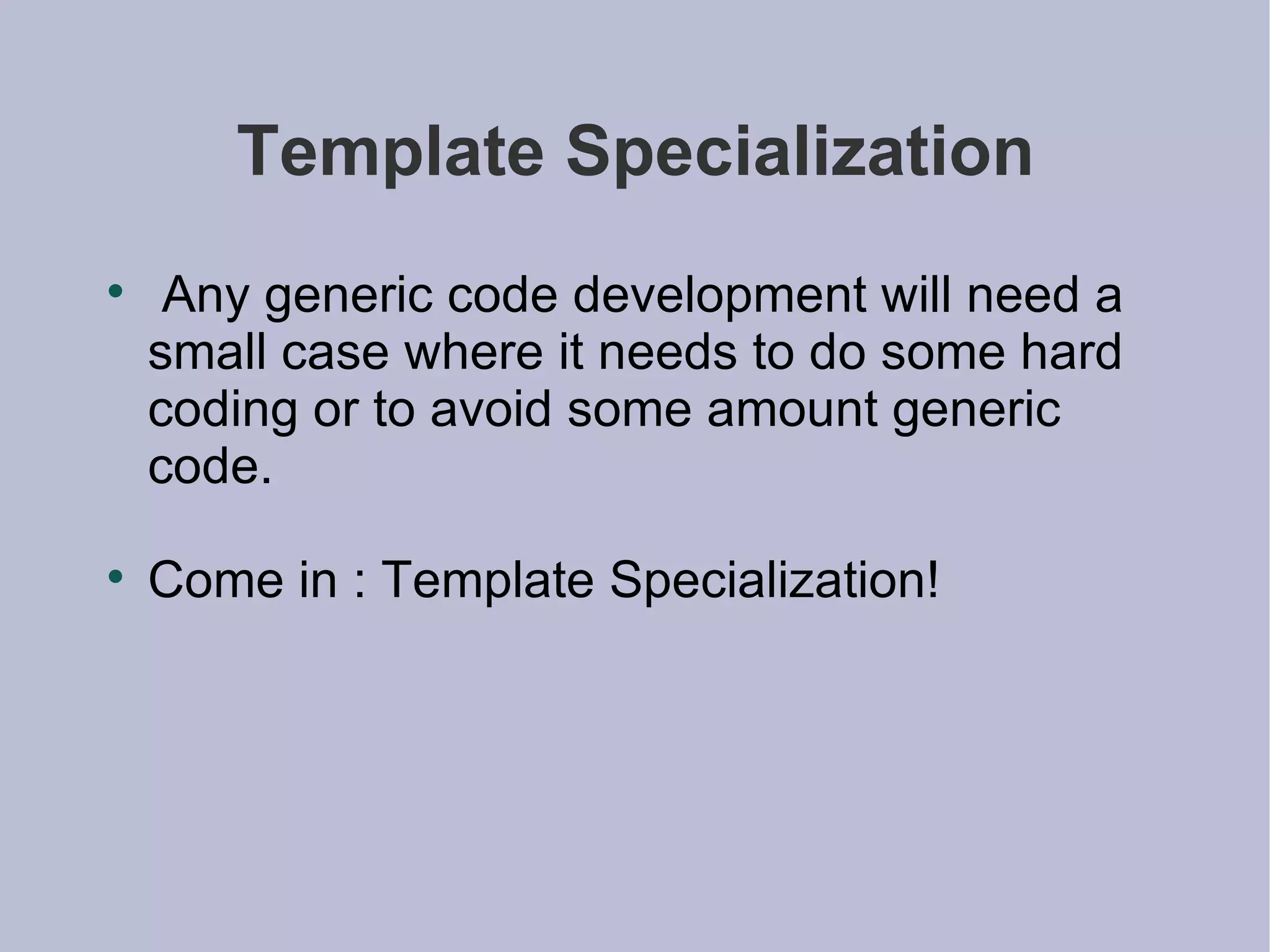

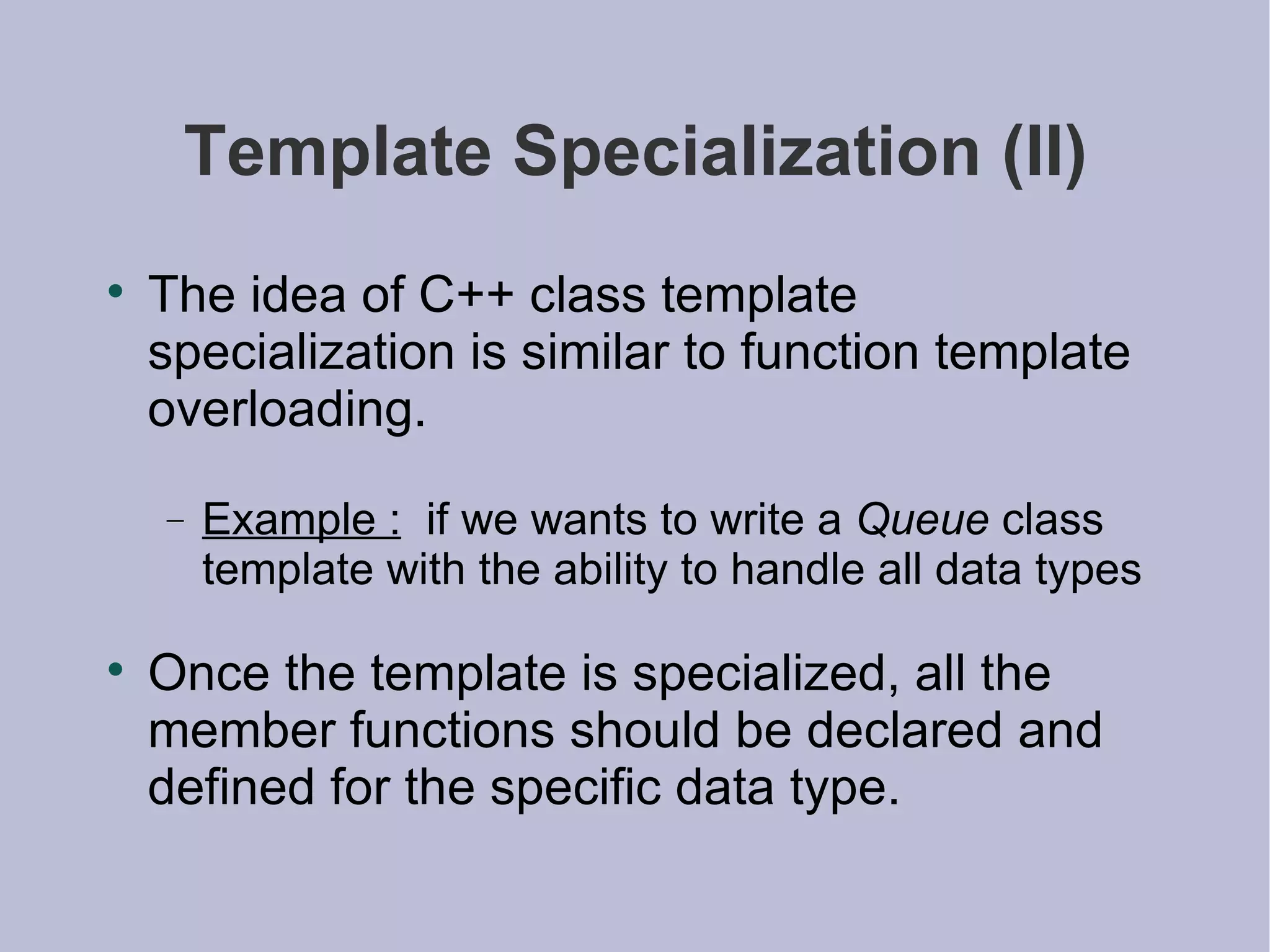
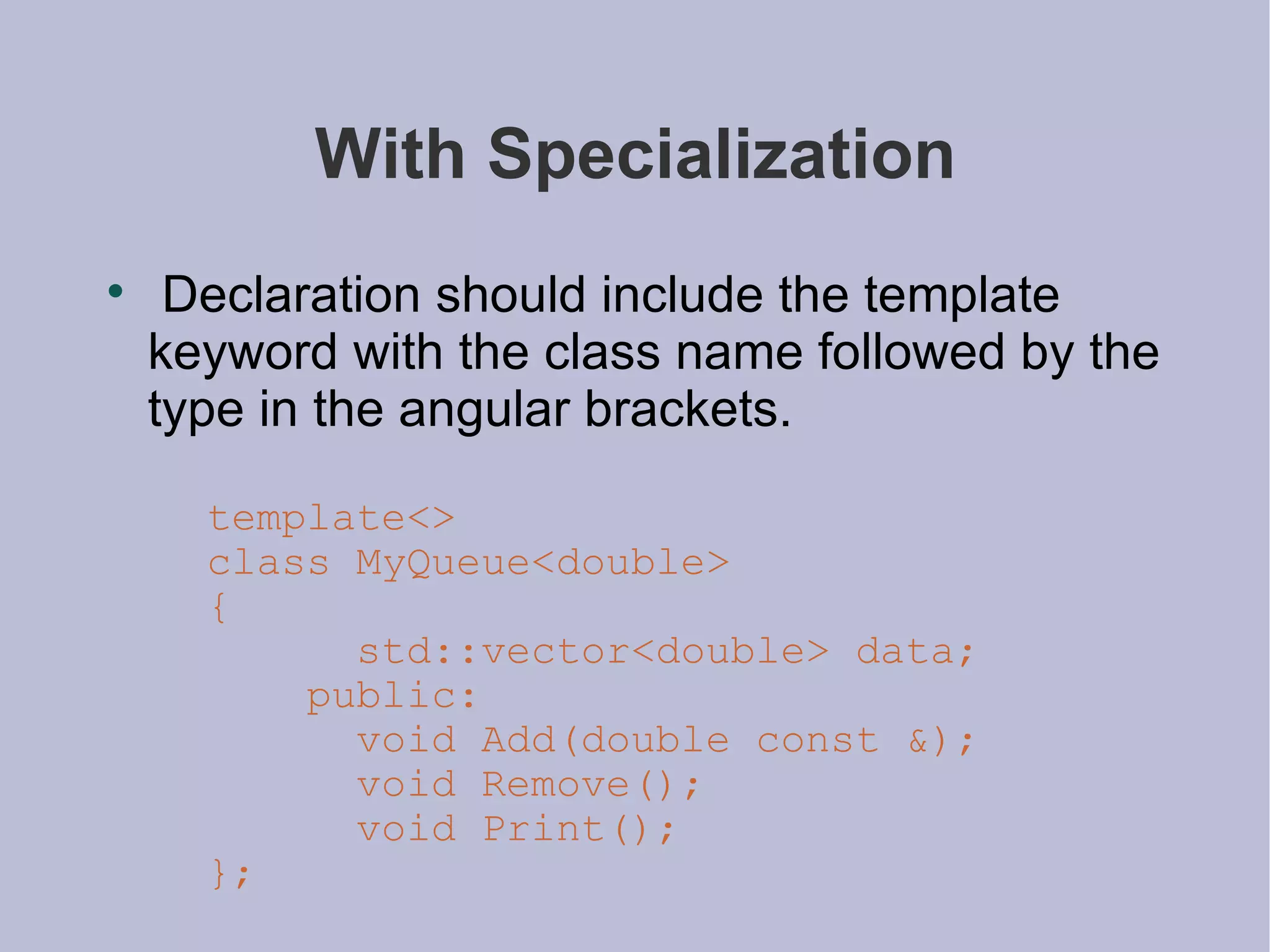
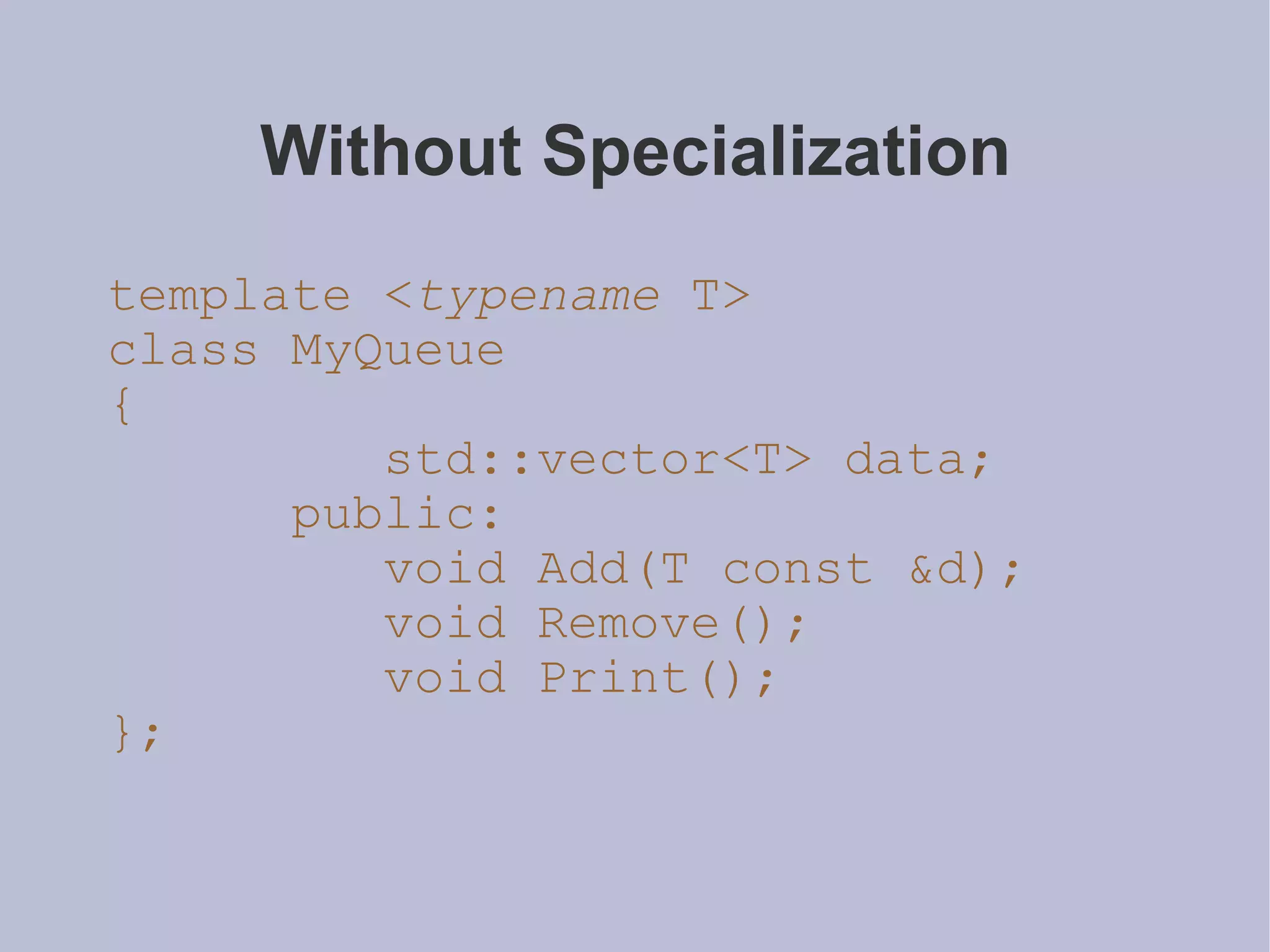
![Other Example : Standard Implementation: template <class T, int size> void Example::add (int number) { for (int i=0; i<size; i++) { data[i] += T(number); } }](https://image.slidesharecdn.com/presentation-c-1222019811448552-9/75/Advanced-Programming-C-16-2048.jpg)
![Specialized implementation: template <> void Example<int,4>::add (int number) { data[0] += number; data[1] += number; data[2] += number; data[3] += number; }](https://image.slidesharecdn.com/presentation-c-1222019811448552-9/75/Advanced-Programming-C-17-2048.jpg)
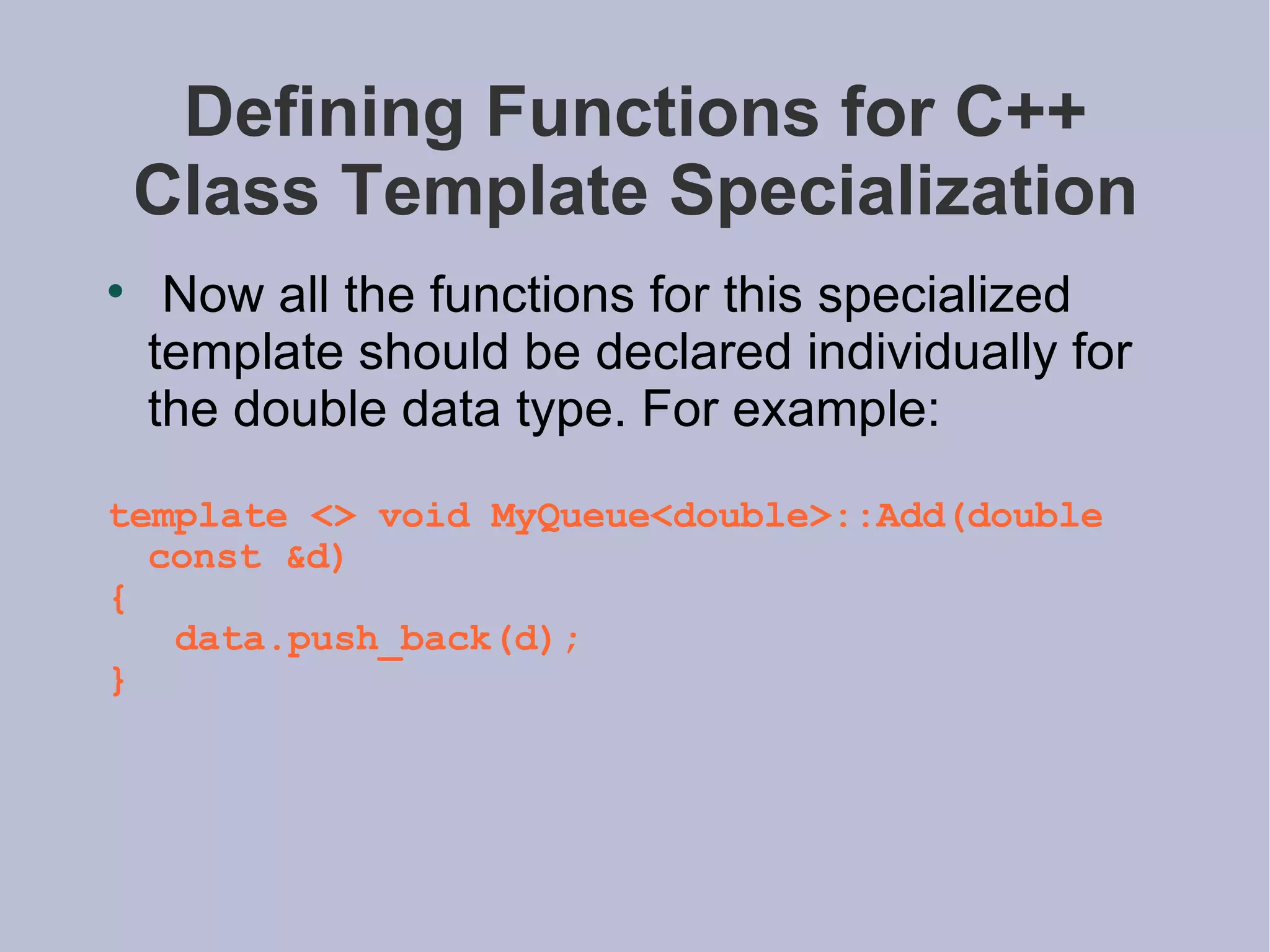
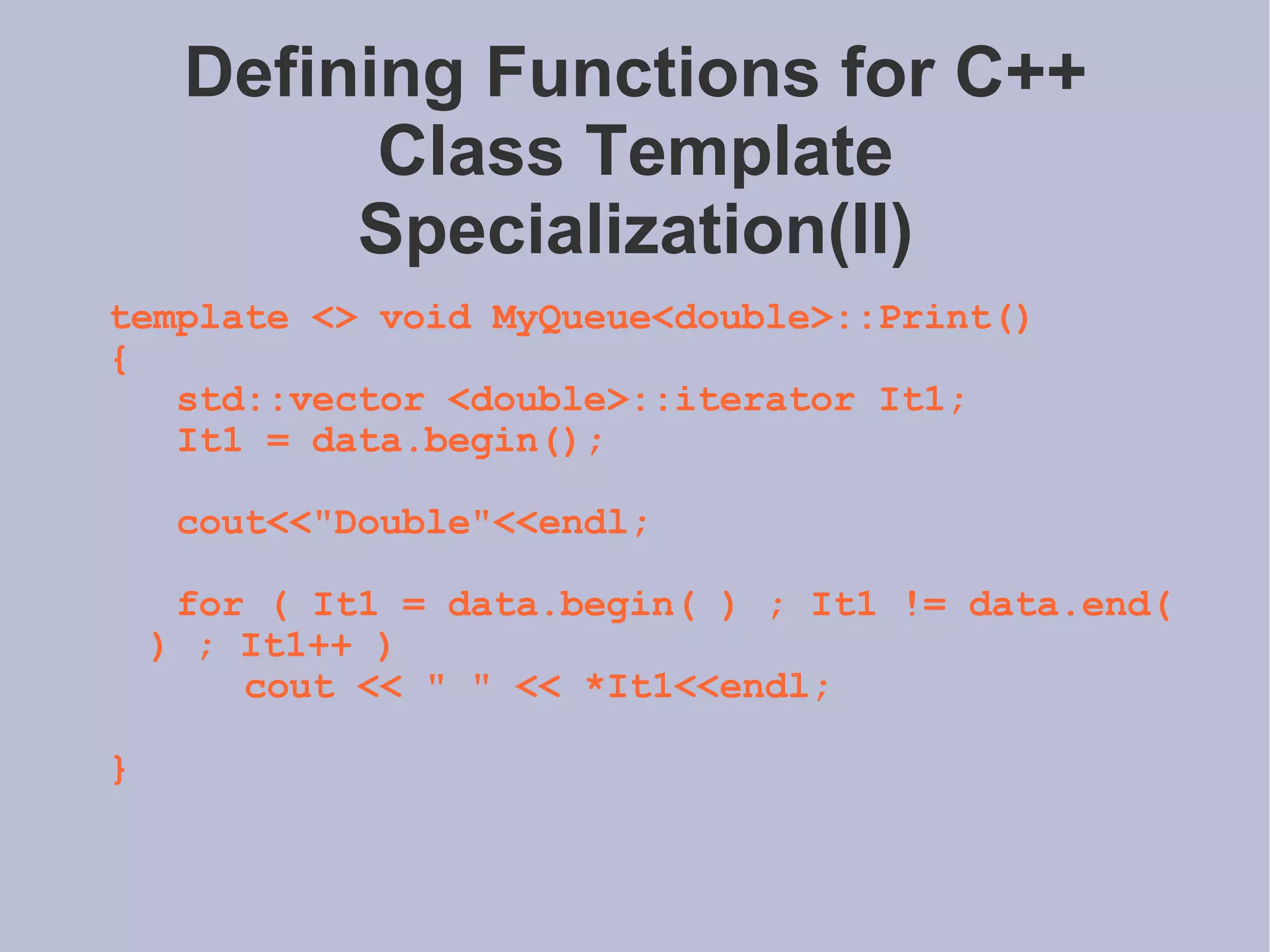
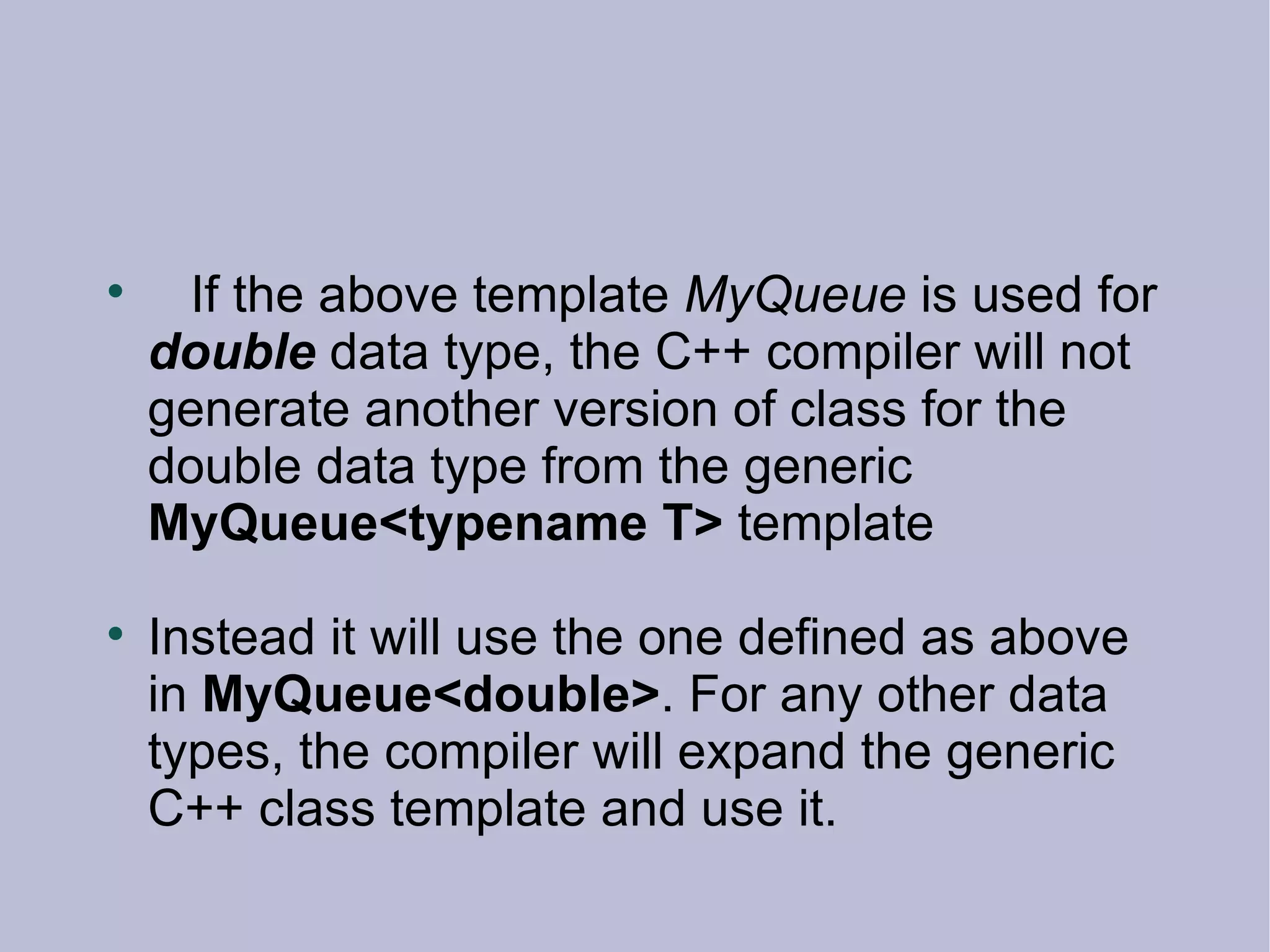
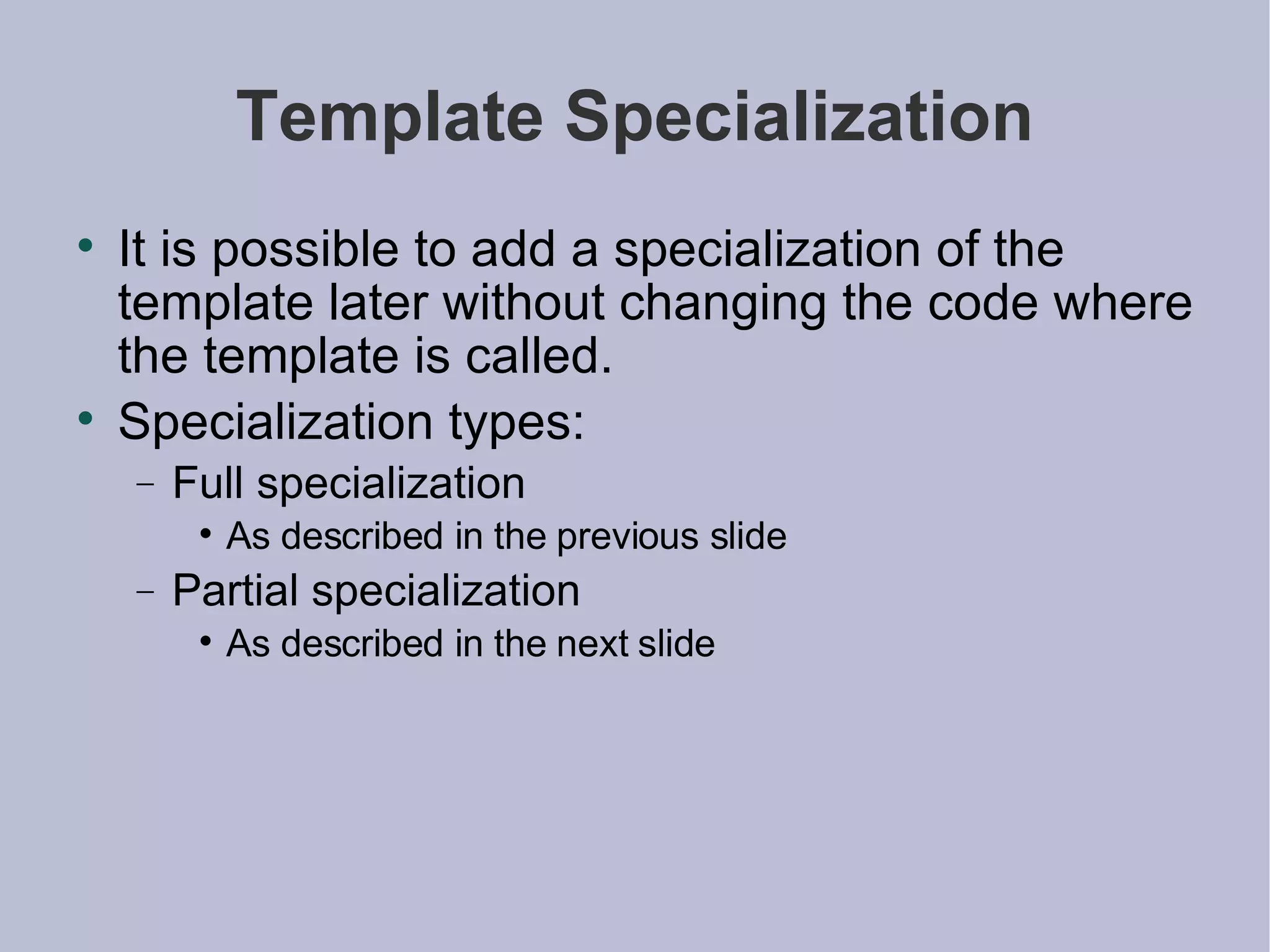
![Partial Specification There are also partial specifications possible. That means that the implementation of the template can still allow parameters. Example: template <class T> void Example<T,1>::add (int number) { data[0] += T(number); }](https://image.slidesharecdn.com/presentation-c-1222019811448552-9/75/Advanced-Programming-C-22-2048.jpg)
